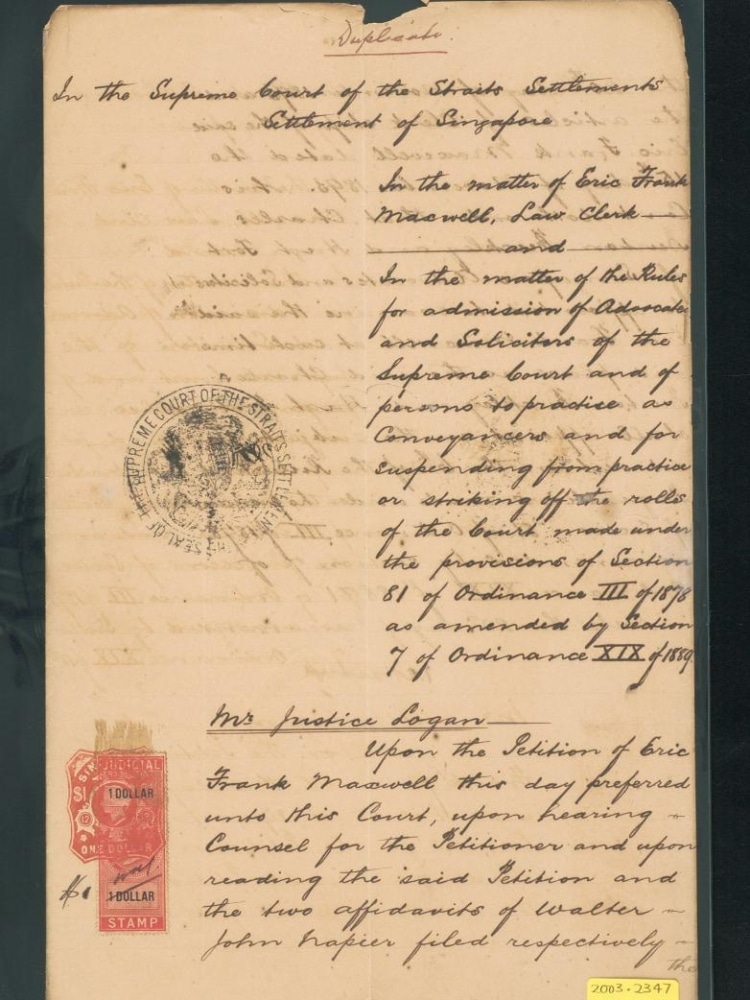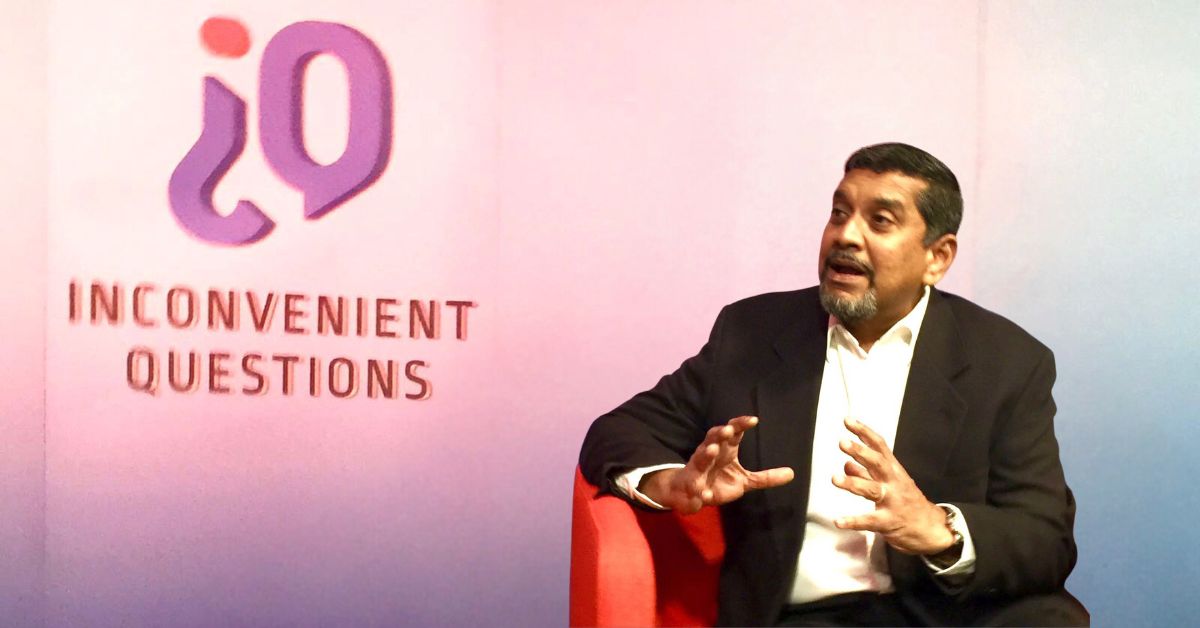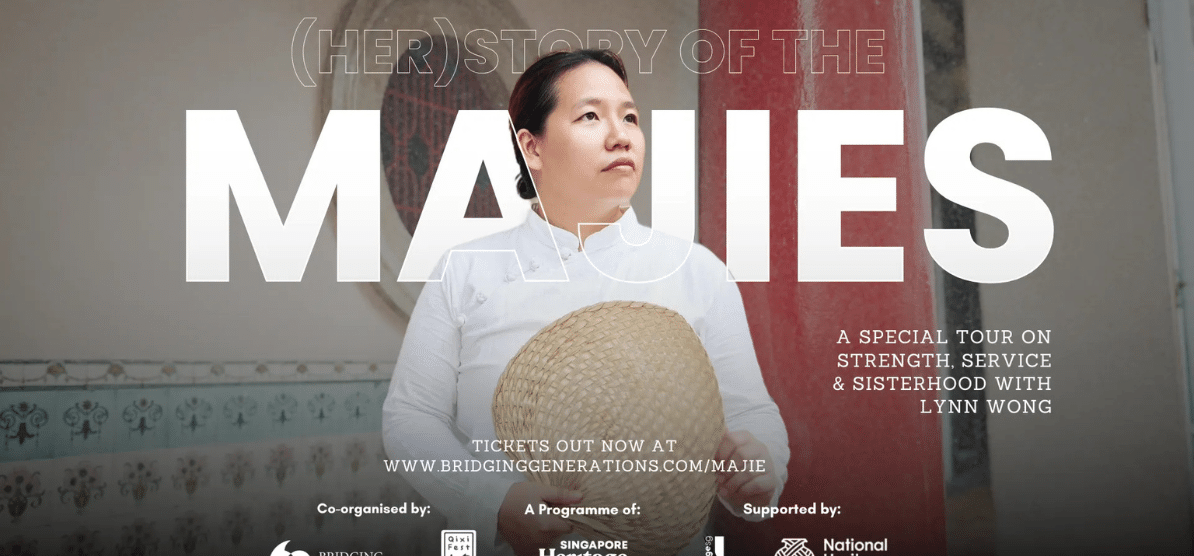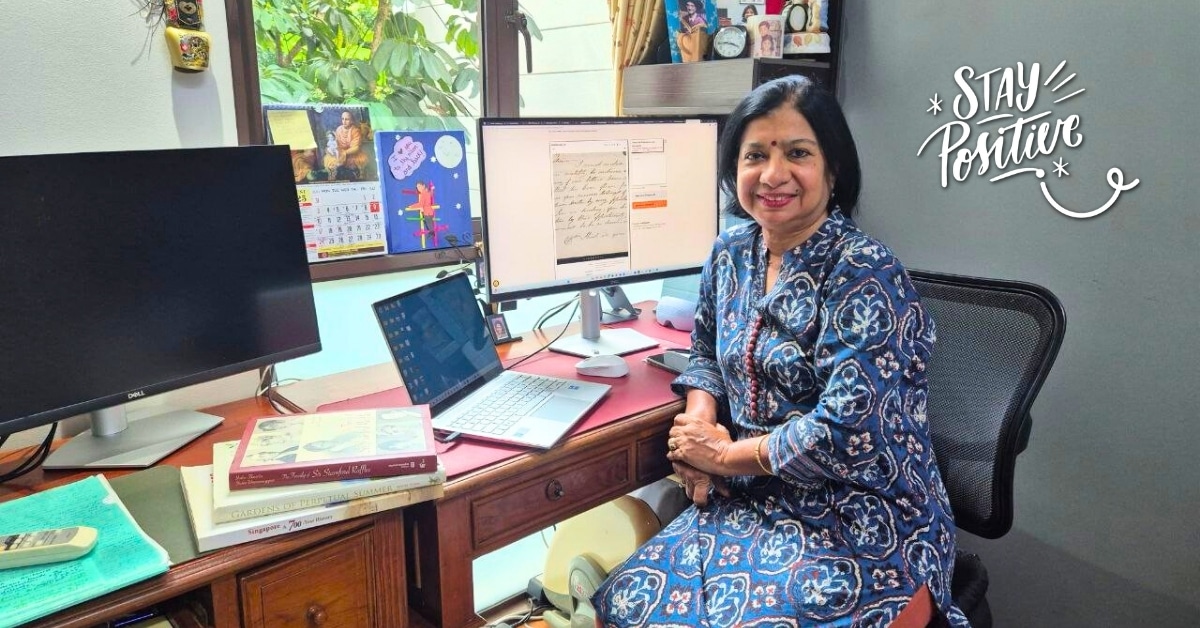
Summary:
- Vandana Aggarwal, a former vice principal and cancer survivor, found purpose and distraction at home by transcribing over 14,000 pages of Singapore’s colonial-era documents for the National Archives’ Citizen Archivist Project.
- Her meticulous approach ensures accuracy, using her historical knowledge and cross-referencing sources, which has earned her recognition, including a certificate of appreciation and a nomination for the President’s Volunteerism & Philanthropy Awards.
- Through transcription, Vandana gained unique insights into colonial officials’ personal lives, appreciating Singapore’s history more deeply, and highlights that human transcription remains far more reliable than AI for complex historical documents.
Back in 2015, Vandana Aggarwal was stuck at home. Apart from battling occasional bouts of nausea – a side effect of the chemotherapy treatments for her breast cancer and lymphoma – the former vice principal had “totally nothing to do”.
The mother of two flipped through the newspaper as she always did before noticing an advertisement for The Citizen Archivist Project by the National Archives of Singapore (NAS).
It caught my eye – maybe because I was not going out and needed something to do and distract myself in a useful way, or maybe because it called out to my love of history,
she says.
As part of the project, members of the public were invited to log onto an online portal and contribute their knowledge or memories by describing photos and transcribing handwritten documents.
The materials were predominantly Straits Settlement records dating back to 1826. They included letters from officials in the colonial government of the time, including the likes of Sir Stamford Raffles and William Farquhar.
Though she would not be paid for her contributions, just the access alone was an exciting proposition for Vandana, a holder of both a master’s and bachelor’s degree in history. It was also a task she could complete entirely from the comfort of her home.
I tried it out for a couple of days, and it quickly became an addiction. It felt like a duty that I had to perform, paying my time to decipher these letters correctly and accurately so that others could do their research.
The 63-year-old says,
Advertisement
14,000 pages over a period of 10 years
Reading the words isn't a problem for me, unless the letters are extremely weathered or the ink is smudged,
she says.
"It's only when you dig into the details that you need to put on your historian’s hat."
You must understand, these are letters that were never meant for us to read. There are misspellings and other mistakes within the text that you’d only notice if you cross-check it with other sources,
she adds.
For the most part, Vandana transcribes only what she can read. She’d rather leave a blank space than “pluck a word out of my imagination”.
When she needs to double-check facts or get a better grasp of the background, she’ll head to the National Library Board’s (NLB) NewspaperSG portal to dive into its digital archive of old newspapers.
I take it very seriously. I don’t want other researchers to waste their time with inaccurate transcriptions, so I will check and recheck before submitting it. It’s my name and reputation as a transcriber on the line,
she avers.
Over the years, the silver steadily worked her way through NAS’ repository. She estimates that she’s turned at least 14,000 handwritten pages into readable online text.
For her efforts, she received a certificate of appreciation from the NLB for her transcription work. She was more recently nominated for The President’s Volunteerism & Philanthropy Awards in 2024.
Intimate understanding of Singapore’s history
When Vandana first started, she used transcription as a way to while away sleepless nights. Back then, she took on a more immersive approach to transcribing letters – at least, until one night.
I would always imagine it very vividly – it was as though I was sitting in a table with an oil lamp, holding a quill, dipping it into an ink bottle and scribbling away as Raffles dictated. It got so vivid one night that I felt as though they were really there,
she says.
"And that's the last time I would let myself get so absorbed. It was too creepy (laughs)."
Over time, she’s seen it as a way of gaining unfettered access into the minds of former colonial officials.
They are the kind of people we’d usually only read about in history books. But to read their personal correspondence and see their mundane, everyday thoughts – like when Raffles couldn't sleep because of noisy fireworks, or another official who complained about barking dogs – it offers up some insight into their thinking at the time while reminding us that they’re very ordinary people with ordinary problems too,
she says.
Perhaps that’s why Vandana, who immigrated to Singapore in 1994 with her family, believes there’s much we should appreciate about our colonial heritage.
As a student of history, I cannot agree that Singapore was made in just 60 years. Like it or not, we are framed by the last 150 years,
she says.
It's popular nowadays to bash colonisers, but we must remember – Singapore had nothing to lose, and everything to gain. Unlike other colonies, we didn’t have resources to plunder. All they wanted was the deep waters around us. Our rapid development would not have been possible without becoming a British colony. The history is clear on that,
she adds.
Also read:
Singapore Red Cross Upgrades HoME+ Monitoring System With Infrared 3D Motion Sensors
The Singapore Red Cross’ HoME+ system helps seniors stay safe at home without being intrusive.
Achieving Happiness: How Yoga Can Help Change Calm Your Mind
Modern life can be stressful and full of negative emotions. Josephine Chia shares how yoga can help you calm down, achieve happiness and manage a busy mind.
Transcription not easily replaced by AI, says citizen archivist
Today, the silver splits her time between transcription, freelance writing, and her four grandchildren. She still goes for chemotherapy about once a quarter.
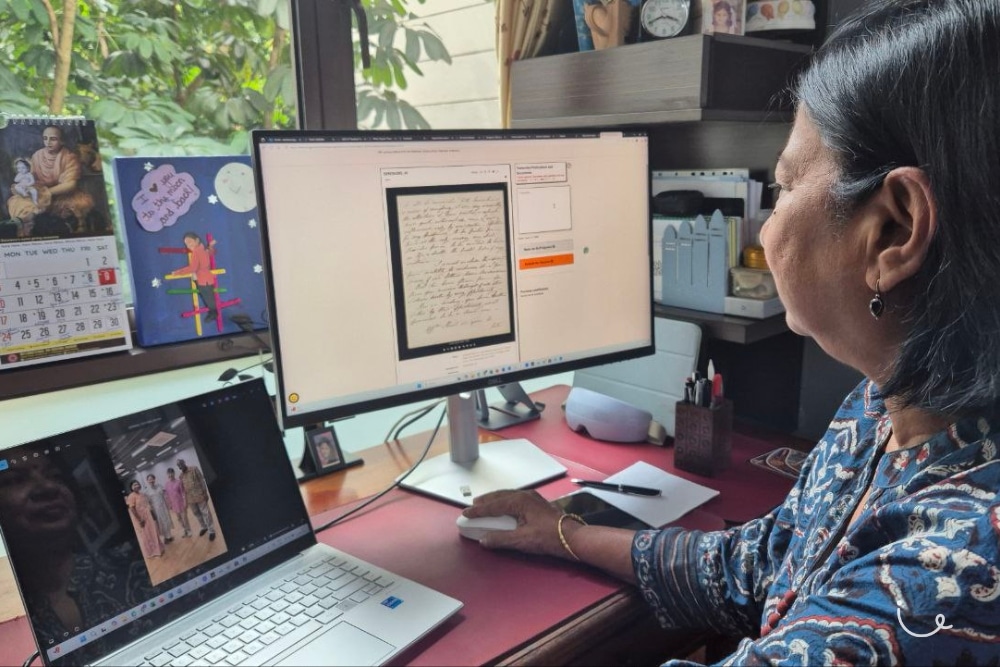
I am not intentionally slowing down my transcribing, but it seems that the NAS is uploading less materials. Maybe they are running out of documents from that time period, or maybe what’s left is all confidential,
she says.
If you’re wondering, the NAS is no longer accepting new applications for The Citizen Archivist Project.
To soothe her itchy fingers, Vandana has looked toward the national archives in her ancestral home of India.
Unfortunately, they don’t allow the public to contribute. It’s a shame – it looks like they are using AI (artificial intelligence) to transcribe their materials, and it has a very difficult time deciphering the i's and the t's and the f's,
she says.
"I estimate it's about 90% wrong (laughs)."
If you ask me, I still have a few good years left before AI takes over,
adds the silver.

